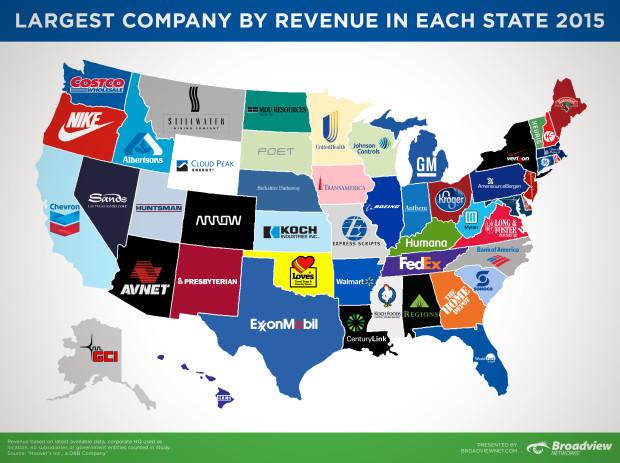Economic Challenges for Washington Businesses Amid Declining Canadian Tourism
How Increasing Tariffs Are Reshaping Cross-Border Travel and Local Economies
Washington state’s economy is feeling the pressure as Canadian tourists, once a cornerstone of local commerce, reduce their visits due to rising tariffs and heightened trade tensions. The increased costs imposed on goods and services have made cross-border travel less affordable for Canadians, leading to a significant drop in their spending within the region. This downturn extends beyond retail shops, deeply affecting hospitality, dining, and entertainment industries that depend heavily on Canadian patronage. Recent data indicates that businesses in these sectors have experienced revenue declines ranging from 15% to 30%, prompting some to rethink their business models or reduce staff.
- Frequency of visits: Markedly decreased as travel expenses rise.
- Revenue impact: Sharp declines especially in towns near the border.
- Employment effects: Seasonal and part-time workers face the brunt of job losses.
- Community consequences: Diminished cultural interactions and lower participation in local events.
| Industry | Revenue Decline (%) | Employment Changes |
|---|---|---|
| Retail | 25% | Reduced operating hours |
| Hospitality | 18% | Staff layoffs |
| Food & Beverage | 22% | Workforce reductions |
| Entertainment | 15% | Event cancellations |
The cumulative impact threatens the economic stability of border communities, compelling local authorities to seek solutions. Industry advocates are calling for tariff negotiations and incentives to revive tourism. Until meaningful policy adjustments occur, the once-thriving cross-border economic synergy continues to erode, underscoring the delicate interplay between trade regulations and regional prosperity.
Small Business Struggles in Border Regions Dependent on Canadian Shoppers
Small enterprises along the U.S.-Canada border, particularly in Washington, are grappling with the fallout from fewer Canadian visitors. These businesses, often reliant on cross-border tourism for survival, face heightened vulnerability amid geopolitical and economic shifts. The tariff hikes have increased travel expenses for Canadians, discouraging frequent trips and dampening demand for local goods and services. Key difficulties encountered by these businesses include:
- Declining customer footfall resulting in unstable sales and revenue.
- Inventory management challenges due to unpredictable tourist seasons.
- Cash flow constraints caused by reduced consumer spending.
- Marketing hurdles in attracting domestic visitors to offset lost Canadian clientele.
The repercussions extend beyond retail and dining, affecting employment and operational costs. Many workers face reduced hours or layoffs, while businesses contend with supply chain disruptions and rising expenses. The table below summarizes the primary sector-specific impacts observed in border communities:
| Industry | Main Impact | Estimated Revenue Loss |
|---|---|---|
| Retail | Lower shopper turnout | 25-40% |
| Hospitality | Decline in hotel bookings | 30-50% |
| Food & Beverage | Reduced dine-in customers | 20-35% |
| Entertainment | Cancelled events | 15-30% |
Government Initiatives and Policy Actions to Aid Impacted Businesses
To counteract the economic challenges faced by Washington’s businesses due to the drop in Canadian tourism, state and federal agencies have introduced several support programs. These include grants tailored for tourism-reliant companies, low-interest loans with deferred repayment options, and tax relief measures targeting hospitality and retail sectors. The Washington State Department of Commerce has also launched campaigns to boost domestic tourism, encouraging residents to explore local attractions as a substitute for cross-border visitors. Business owners are urged to utilize these resources and participate in upcoming training sessions focused on adapting to evolving trade conditions.
- Grants up to $25,000 for tourism-related enterprises
- Low-interest loans with 12-month repayment deferrals
- Tax credits and reduced rates for hospitality and retail businesses
- Support for digital marketing and e-commerce integration
| Agency | Program | Benefits | Application Deadline |
|---|---|---|---|
| Washington Dept. of Commerce | Tourism Recovery Grant | Up to $25,000 | August 15, 2024 |
| U.S. Small Business Administration | Emergency Low-Interest Loans | 3.75% fixed interest | September 30, 2024 |
| State Tax Commission | Hospitality Tax Relief | Reduced tax rates and credits | December 31, 2024 |
On the legislative front, Washington’s representatives are advocating for tariff reductions specifically targeting tourism-related goods and services. Bipartisan efforts aim to restore competitive advantages for local businesses. Concurrently, ongoing discussions between U.S. and Canadian trade officials seek to recalibrate tariffs to foster economic recovery. Collaborations between public and private sectors are also underway to create new travel corridors, combining innovative transportation options with tourism incentives to attract Canadian visitors.
Adaptive Strategies for Washington Businesses to Diversify and Engage New Customers
In response to the decline in Canadian tourists, Washington businesses are pivoting towards alternative markets and adopting fresh marketing strategies. Many are investing in digital platforms to reach domestic travelers interested in exploring local destinations. Partnerships with regional influencers and community-driven events have helped generate interest among new demographics. Businesses are also customizing offerings to appeal to families, retirees, and younger adventure seekers, groups that have shown increased domestic travel activity.
Common approaches include:
- Focused advertising targeting nearby urban centers
- Flexible pricing and personalized travel packages
- Collaborations with local travel agencies and hospitality providers
- Expanded loyalty programs to encourage repeat visits
| Strategy | Target Audience | Anticipated Outcome |
|---|---|---|
| Enhanced Digital Marketing | Millennials and Gen Z | Higher engagement and bookings |
| Local Event Sponsorships | Families and Retirees | Increased community loyalty and brand awareness |
| Dynamic Pricing Models | Budget-conscious travelers | Optimized revenue and occupancy rates |
| Cross-Regional Partnerships | Nearby travelers | Broadened market reach and referral traffic |
Conclusion: Navigating Uncertainty Amid Ongoing Trade Disputes
The persistent tariff conflict continues to reverberate through the economies along the U.S.-Canada border, with Washington’s businesses bearing the brunt of reduced Canadian tourism. As visitor numbers decline, local enterprises face mounting operational and financial challenges. Without a clear resolution, stakeholders stress the importance of diplomatic efforts to restore cross-border commerce and tourism. The upcoming months will be pivotal in determining whether Washington’s economy can adapt and thrive or if deeper structural changes are imminent.







